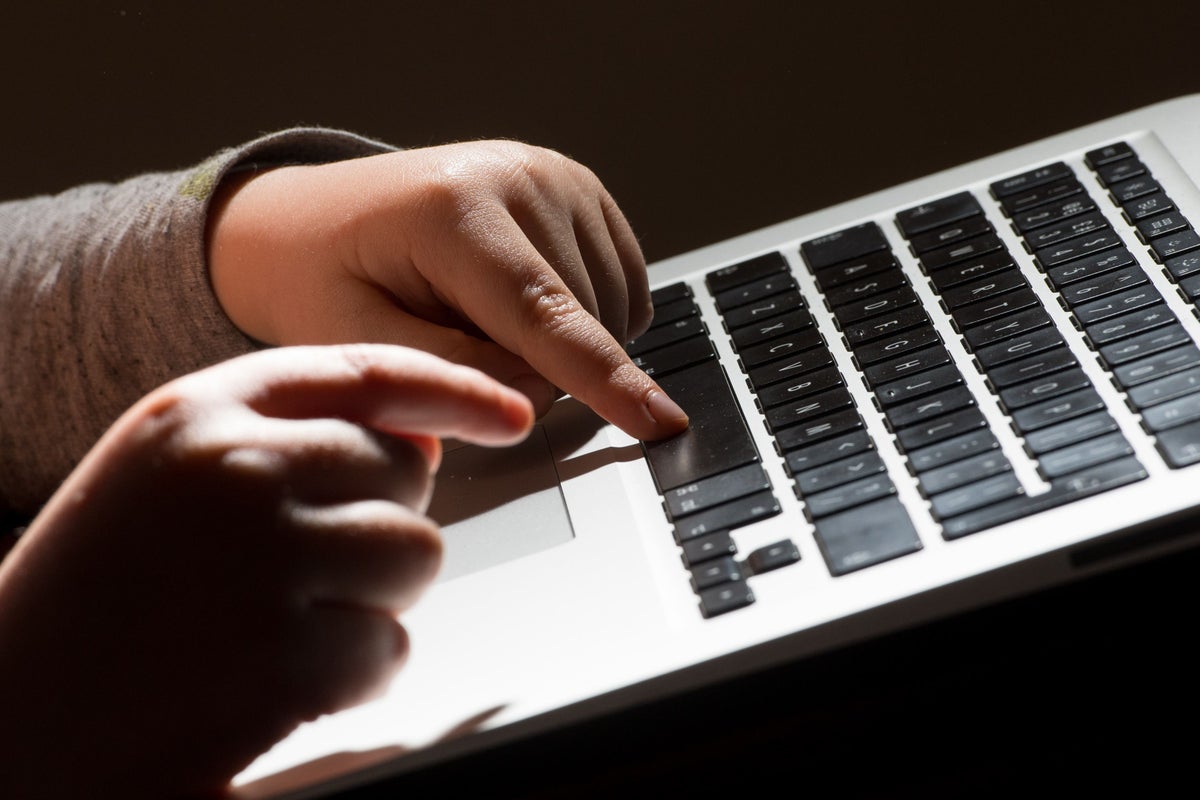
Acts of sexual violence commonly found in pornography were referenced in half of police interview transcripts of child-on-child sex abuse cases examined by the Children’s Commissioner for England.
Dame Rachel de Souza described the finding as “incredibly concerning” and said further review of some of the cases found children suggesting direct links between exposure to pornography and harmful sexual behaviour.
In a bid to investigate the role that pornography might play in some child abuse cases the commissioner’s office used statutory powers to, for the first time, collect and analyse just over 500 files on child-on-child sexual abuse.
What this compelling new evidence now shows is that these acts commonly taking place in pornography are also occurring in terrible cases of child sexual abuse and violence— Dame Rachel de Souza
The resulting report, published on Tuesday, considered 379 transcripts from one police force, of interviews with children who have been sexually harmed and children who have sexually harmed another child.
It also looked at 123 Sexual Assault Referral Centre (SARC) documents from one NHS foundation trust regarding children who were sexually harmed by other children.
It found that, of the police interviews, 50% contained reference to an act of physical aggression, act of humiliation or act of coercion, while 10% of the SARC documents contained reference to at least one of these acts.
In the police transcripts the most common acts referenced were name-calling which sometimes included the term “worthless”, while the most common category of sexual violence was physical aggression, with 35% of cases involving slapping, strangulation, hairpulling, gagging, spanking, whipping, punching or kicking.
Almost one in 10 (9%) of the cases for which the police transcripts were looked at involved both an act of physical aggression and an act of humiliation.
Dame Rachel said the latest evidence is “compelling” and suggests that “acts commonly taking place in pornography are also occurring in terrible cases of child sexual abuse and violence”.
Describing the latest research as “perhaps the work that I have foundhardest to publish since becoming Children’s Commissioner”, she said the case for bringing in the most robust protections for children online is stronger than ever.
She said: “Each of the 502 case files analysed for this report represents terrible trauma wrought on a child by another child.”
She said the report “contributes to the literature on pornography’s role in shaping and fuelling violence against women and girls” and that while the risk factors behind harmful sexual behaviour and children abusing other children are complex, “much of the abuse is taking forms which are depicted in pornography”.
Dame Rachel said the nature, scale and impacts of online pornography should not be shied away from as she called for the Online Safety Bill to complete its passage through Parliament “as an urgent priority”.
The Bill, which is currently undergoing line-by-line scrutiny in the House of Lords, must ensure that all platforms which host pornography have robust age verification on adult content in place, that the requirements to protect children from online pornography are consistent across all types of regulated services, and should mandate that all sites remove illegal content, including child sexual abuse material, she said.
Dame Rachel’s report follows research by her office earlier this year which found that almost half of young people believe girls expect sex to involve physical aggression and found that one in 10 children in England had viewed pornography aged just nine, with half of those surveyed having seen it by the time they reached the age of 13.
Of her latest research she said: “What this compelling new evidence now shows is that these acts commonly taking place in pornography are also occurring in terrible cases of child sexual abuse and violence.
“When we combine that with what children and young people themselves tell us about the influence porn has on their behaviour and wellbeing, I believe we have a stronger case than ever for bringing in the most robust protections for children online.
“No child should be able to access or watch pornography. Passing the Online Safety Bill must be a priority if we are to protect children quickly and effectively – but it is also just one part of the essential and urgent work of protecting children from sexual abuse.”
Lynn Perry, chief executive of children’s charity Barnardo’s, said their frontline workers have supported children who have taken part in sexual acts they have seen online “despite feeling uncomfortable and even scared”.
She added: “Barnardo’s remains concerned that the Online Safety Bill does not go far enough to protect children from stumbling across harmful content.
“The Government must strengthen the new laws by introducing robust age verification for pornography websites, as well as making sure that content which is already illegal to sell in a shop is also illegal online.”







